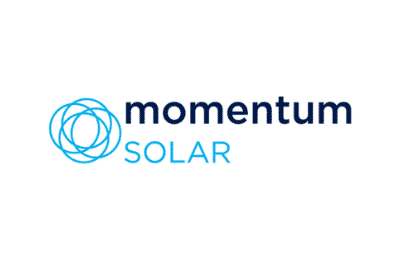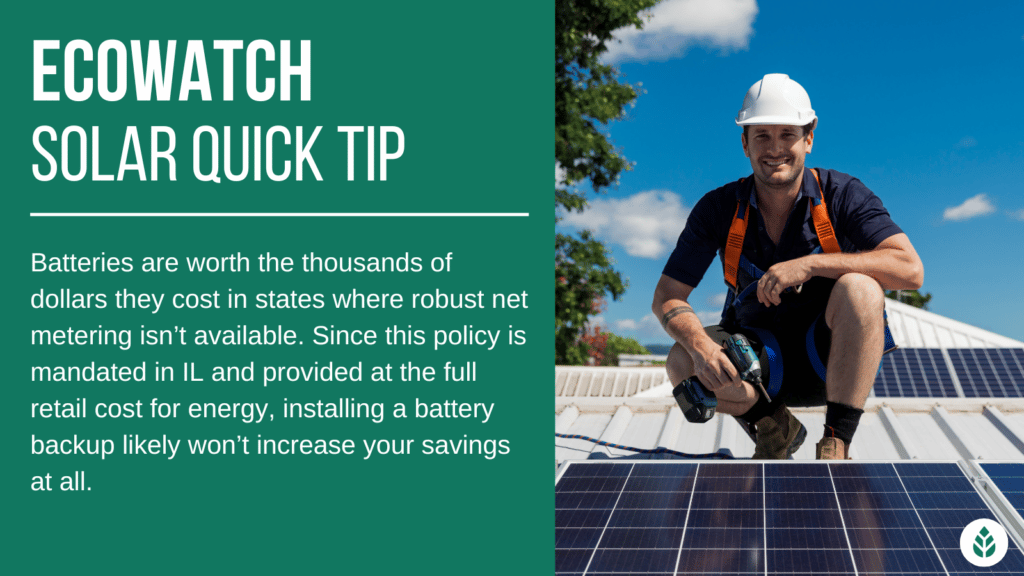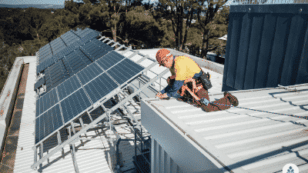
Top 7 Best Solar Companies in Illinois (2024 Reviews)
In this guide on Illinois’ top solar installation companies, you’ll learn:
- What are the top solar installers in Illinois?
- What are the most important factors to look for in a solar installer in Illinois?
- Is DIY solar installation better than hiring a professional in Illinois?
Each product and or company featured here has been independently selected by the writer. You can learn more about our review methodology here. If you make a purchase using the links included, we may earn commission.
Are you thinking about converting your home to solar energy? In Illinois, going solar is almost always beneficial. The average solar customer spends less than most U.S. residents on their solar array and still saves more than $21,600 after the panels pay for themselves. While adopting clean energy in Illinois is often an easy decision, choosing one of the 100+ installers that service the state can be a bit of a headache.
In this guide, we’ll provide a list of what we believe are the best solar companies in Illinois. We’ll break down why we recommend them, and we’ll also provide some insight into the factors that we believe are most crucial when deciding which Illinois solar company is best for you.
What Are the Best Solar Companies in Illinois?
We’ve spent hours and hours researching solar installers in your area so that you don’t have to. In our research, we’ve found that the following providers are the best solar companies in Illinois and are the most likely to meet and hopefully, exceed your expectations.
- SunPower: Best National Provider
- ADT Solar: Best Warranty Coverage
- Blue Raven Solar: Best Financing Program
- StraigtUP Solar: Best Regional Installer
- Momentum Solar: Best Customer Service
- Windfree Solar: Best Local Installer
- AES Solar: Most Local Experience
Compare Illinois’ Top-Rated Solar Providers
Each of these installers brings something unique to the table that we believe is worth considering if you’re thinking about going solar in Illinois. Overall, we recommend SunPower or ADT to handle your solar project, but the other providers might serve you better, depending on your specific wants and needs.
The table below includes a quick side-by-side look at SunPower and ADT, and it gives you a glimpse of how they compare to the other top providers in your area.
| Solar Providers | Superlative | Our Score | Avg Cost | Warranty | Financing Options | Get Quote |
| SunPower | Best National Provider | 5/5 | $$$$ | Minimum of 25 years for equipment, workmanship and production | Cash, solar loan, solar lease, PPA | Get Quote |
| ADT Solar | Best Warranty Coverage | 4/5 | $$$ | 25 years for equipment, workmanship and production | Cash or solar loan | |
| Blue Raven Solar | Best Financing Options | 4.5/5 | $$ | 25 years for equipment and performance; 10 years for workmanship | Cash and solar loans | Get Quote |
| StraightUp Solar | Best Regional Provider | 4/5 | $$$ | 25 years for equipment and performance; 10 years for workmanship | Cash and solar loans | Get Quote |
| Momentum Solar | Best Customer Service | 4.5/5 | $$$ | 25 years for equipment, production and workmanship | Cash, solar loan, solar lease, PPA | Get Quote |
| Windfree Solar | Best Local Installer | 4/5 | $$$ | 25 years for equipment and performance; 15 years for workmanship | Cash and solar loans | Get Quote |
| AES Solar | Most Local Experience | 4.5/5 | $$$ | 25 years for equipment and performance; 10 years for workmanship | Cash, solar loan, solar lease, PPA | Get Quote |

Blue Raven Solar
Pros
- Industry-leading in-house financing
- Competitive pricing
- Excellent reputation
Cons
- Doesn't offer solar batteries (coming 2022)
Blue Raven Solar changed the entire solar industry by implementing a revolutionary financing option that is now the gold standard for solar loans. It was recently purchased by SunPower, too, so it’s now backed by a stellar parent company.
The company has limited service offerings, and it currently doesn’t install batteries. In an area like Illinois, where net metering is mandated but the credit rate isn’t at the retail value per kWh for many customers, this is an important downside to consider.
Why We Chose Blue Raven Solar as the Company With the Best Financing Program
Solar equipment is expensive, even in areas like Illinois, where smaller system size requirements mean below-average costs. Cash purchases and loans are the only payment options we generally recommend, but even a standard solar loan can be prohibitively expensive for the average Illinois resident — especially as batteries become more of a crucial part of your system. That’s where Blue Raven’s BluePower Plus+ program shines.
This financing program requires no down payment, so upfront costs are non-existent. It also couples low interest rates with 18 months of interest-free financing. Over that first year and a half, you can accrue energy savings with your system — potentially more than $1,700, based on the average monthly electric bill in Illinois — to put toward your future payments. This program helps reduce ongoing costs as well as initial pricing, thereby maximizing accessibility.
Blue Raven is a large company, but it’s also well-known for providing great customer service, which is just a bonus upside to choosing this installer.
What We Don’t Like
Blue Raven Solar only installs solar panels, so system customization options are limited. This didn’t used to be a huge deal in Illinois since the state-wide net metering program made batteries a less appealing option, but, as mentioned, that policy recently changed, and the credit rate is lower. We expect it to continue to decline and eventually be phased out. That will make batteries more valuable and might make them necessary to see long-term solar savings. We’d also love to see EV chargers and other services like energy audits added to Blue Raven’s product and service line-ups.
Additionally, Blue Raven doesn’t accept leases or PPAs. Again, this isn’t a major downside since the company has an industry-leading solar loan program to boost accessibility. Still, though, some customers may not qualify, which means these other low-cost options would be a nice addition. And once batteries bump up average system costs, this could be more of an issue.
Read our full review of Blue Raven Solar for more information.
Solar Products
Blue Raven Solar installs four tier-one monocrystalline solar panel brands, including Hyundai, Trina, Canadian Solar and SolarEdge. These are all reliable panel brands that should stand up to the severe weather in Illinois and provide years of substantial energy savings, given their above-average energy efficiency ratings.
The SolarEdge panels are the most affordable of the bunch, so they’re the option we’d recommend if you’re looking to minimize your total system costs. If you instead want to maximize your solar production, the Trina panels have the highest efficiency and will deliver maximum savings.
Unfortunately, Blue Raven doesn’t carry any other add-on products. It does, however, install Enphase inverters, so you can get access to the Enphase monitoring app through the company.
Financing Options
Blue Raven only accepts cash and solar loans through its in-house financing program, BluePower Plus+. We would like to see leases and PPAs offered for maximum accessibility, but we also feel that the loan program does help make solar more accessible throughout Illinois, and creative financing options like this will help out immensely even after batteries become the norm.
While we’re big fans of the BluePower Plus+ program, we do still recommend a cash purchase. This will still lead to higher overall savings on your electricity bills, and your panels will pay themselves off more quickly since they don’t also have to cover the interest from a loan.
Warranty Information
When you go solar with Blue Raven, your panels come with a 25-year manufacturer’s and performance warranty, the latter of which is longer than the industry standard.
Blue Raven also includes a ten-year workmanship warranty for the installation labor, which is in line with the industry average. However, in high-risk areas like Illinois, we really like to see longer coverage for complete protection. Tornadoes and thunderstorms put your system at an increased risk, and above-average labor warranty coverage would be welcome.
Still, the average system from Blue Raven should last for between 25 and 35 years.
Facts and Figures: Blue Raven Solar
| EcoWatch Rating |
|---|
| Better Business Bureau (BBB) Rating |
| Year Founded |
| Average Cost ($-$$$$$) |
| Solar Services |
| Brands of Solar Equipment Offered |
| Warranty Coverage |
| 4.5 |
| A+ |
| 2014 |
| $$ |
| Solar Panels, System Monitoring |
| Trina Solar, Canadian Solar, SolarEdge, Silfab, SunPower |
| 25-year manufacturer warranty; 10-year workmanship warranty, 2-year production guarantee |

StraightUp Solar

Regional Service
Average cost
Pros
- Certified B Corp
- Full-service home energy solutions
- Representatives are experts on local policies
Cons
- Limited service area
- No leases or PPAs
StraightUp Solar provides the outstanding customer service you’d expect from a local installer with the pricing and availability of a national provider.
The company isn’t as accessible as others, given the limited financing options, but it’s still a great option for those that can pay in cash or qualify for a loan.
Why We Chose StraightUp Solar as the Best Regional Provider
StraightUp Solar is a regional company that has been serving Illinois since 2006 and has completed 2,300+ solar installations. The service is limited to Illinois and Missouri, which means you get local expertise rather than a more generalized company that installs throughout the country.
The customer service offered by this installer is outstanding and more in line with what you’d expect from a much smaller company. It maintains an incredible 4.9-star review on Google Reviews and a 4.55-star review on the Better Business Bureau’s (BBB) website. Most customers are thrilled with the communication and overall professionalism of this provider.
The company’s reps are willing and able to help you take advantage of state and local solar incentives, and they can tackle a nice array of solar and energy efficiency services to make your home as efficient as possible.
What We Don’t Like
There isn’t much we can say about StraightUp that isn’t overwhelmingly positive. The only real downside we see is that it doesn’t accept leases or PPAs, so you’ll be limited to choosing a cash purchase or a solar loan. This will be more of a problem in the future, in our opinion, as the industry shifts toward a lack of net metering and batteries being required to see solar savings.
Since a lot of customers understandably can’t make a cash purchase work and may not have the credit score to qualify for a loan, that does make the company a little less accessible now, as well.
The only other potential drawback is that the company doesn’t serve the entire state of Illinois, so you might not have access to this provider.
Solar Products
StraightUp Solar installs panels from a large variety of manufacturers. While most companies just carry a handful of brands, StraightUp prioritizes customization options and can get access to just about any tier-one residential solar panel you might want. Its design team can even compare brands for you to help you choose the one best suited to your energy needs.
In addition to solar panels, StraightUp Solar also provides access to the following products and services:
- Tesla Powerwalls
- Enphase IQ solar batteries
- Enphase islanding inverters to maintain power during blackouts, even if you don’t have batteries installed
- The Tesla and Enphase solar monitoring apps
- SPAN Smart Panel technology for improved system performance
- Commercial solar projects
We love to see the battery options here, especially with net metering declining in the state. Batteries will always provide effective retail-rate net metering, so they’re a great way to boost solar savings, and they’ll be even more beneficial in the future if the policy is discontinued.
Financing Options
StraightUp Solar only accepts cash purchases and loans. These are our only recommended options for most customers, but again, it would be nice for the sake of accessibility if the provider also accepted low-cost options like leases and PPAs.
Between a cash purchase and a loan, we’d recommend going with cash if you can afford it. Paying in cash yields the most benefits over time, like improved energy savings and a faster panel payback period.
Solar loans are affordable upfront, but if batteries become the norm, as we’re expecting them to, StraightUp might need to add leases and PPAs to boost accessibility.
Warranty Information
When you go solar with StraightUp Solar, you get an equipment warranty and performance warranty from the panel manufacturer. In most cases, these will last for 25 years each, although this can vary based on the panel brand you choose to install through the company.
StraightUp also includes a ten-year workmanship warranty, which is the standard in the industry. Again, we’d prefer to see a longer warranty for the labor, given the above-average risk of rooftop panel damage in Illinois. However, we do feel the company’s local expertise and experience should help prevent any from occurring.
Facts and Figures: StraightUp Solar
| EcoWatch Rating |
|---|
| Better Business Bureau (BBB) Rating |
| Average Cost ($-$$$$$) |
| Solar Services |
| 4 |
| A+ |
| $$$ |
| Solar Panels, Solar Batteries, EV Chargers, Community Solar, Maintenance & Repairs |

Momentum Solar
Pros
- Great warranty coverage
- Concierge service ensures steady communication
- Representatives are experts on local policies
Cons
- Slightly limited service offerings
- Only available in 11 states
Momentum Solar is a regional installer that couples outstanding, hands-on customer service with above-average warranty coverage for peace of mind.
The company recently settled on a racial discrimination lawsuit with several past employees, which is a significant and serious drawback, although the accusations weren’t substantiated in a court of law. Still, being involved in such a case is, of course, a downside in and of itself.
Why We Chose Momentum Solar as the Best for Customer Service
Momentum Solar sets itself apart from the competition by providing industry-leading customer service, despite being a larger regional company. It does this, in part, by providing a concierge service with all of its installations. From the first call you have with the company to any warranty claims you might need to be addressed, you’ll have a single point of contact to remove confusion and provide continuity of service from start to finish.
Momentum Solar might serve multiple states, but its representatives are all trained experts on local laws and regulations. That means your rep can help you find any and all state and local incentives available to you to help you save money on your conversion. That includes things like the Illinois Shines Program, the Illinois Solar for All Program, the statewide property tax exemption, as well as local incentives from individual municipalities and electricity providers.
Momentum also provides 25 years of warranty coverage for all aspects of your system, which is ideal for ensuring your equipment stands up to the extreme weather in Illinois for years after the installation is completed.
What We Don’t Like
The biggest reason we see not to hire Momentum is that it is was recently wrapped up in a lawsuit for racial discrimination against past employees. The company settled, and there isn’t much information about the case or the settlement, but we’d prefer not to see allegations made in the first place. We like to promote companies that are environmentally and socially sustainable, and Momentum falls short when it comes to the latter.
Additionally, Momentum has limited service offerings, as it only installs panels and batteries. Other add-on products like EV chargers, which are massively popular in Illinois, aren’t available, so you’ll need to choose a different provider if you’re looking for more system customization options. Batteries are, in our opinion, the most important option aside from panels, though, so that’s great to see from this provider.
Read our full review of Momentum Solar for more information.
Solar Products
Much like StraightUp Solar, Momentum works with a wide variety of panel brands and can get you access to most options you might be interested in. The company does mention that it only works with tier-one monocrystalline panels, which we recommend, but within that category, you’ll have plenty of brand options from this installer.
The selection available means you can either optimize for production to maximize savings or for price to minimize your upfront system costs.
Momentum only includes one other product and an additional service aside from solar panel installations:
- Enphase solar batteries
- The system monitoring mobile app from Enphase
We’d love to see more options for batteries, but even just having one is a good sign that the company is ready for changes to NEM policies that we expect in the future.
Financing Options
Momentum keeps its products and services accessible by accepting a wide range of financing options, including cash purchases, loans, leases and PPAs.
We recommend against a lease or a PPA unless these are the only options you can make work. These deliver much lower savings than the other options and prevent you from taking the federal solar tax credit, which holds an average value of over $6,100 in Illinois.
A cash purchase will provide more savings than a loan, but a loan is more widely accessible due to the upfront payment being much lower — sometimes as low as $0.
The variety of options is helpful now, but we expect it will be all but necessary in the future when batteries become a requirement and push up installation costs by $10,000 to $20,000.
Warranty Information
Momentum Solar includes a 25-year warranty with all of its systems, which covers the equipment, the panel production and the workmanship.
In an area like Illinois that sees above-average rainfall and frequent extreme weather, we think the labor warranty is the most valuable. The equipment warranty can also protect you from related issues, like falling tree branches or blown debris from tornadoes.
Overall, we’d expect a solar array from Momentum to last for between 25 and 35 years, which is outstanding.
Facts and Figures: Momentum Solar
| EcoWatch Rating |
|---|
| Better Business Bureau (BBB) Rating |
| Year Founded |
| Average Cost ($-$$$$$) |
| Solar Services |
| Brands of Solar Equipment Offered |
| Warranty Coverage |
| 4.5 |
| A+ |
| 2009 |
| $$$ |
| Solar Panels, Solar Batteries |
| Q Cells, REC, Trina Solar, Jinko Solar, Canadian Solar and others depending on location |
| 25-year manufacturer and workmanship warranties |

Windfree Solar
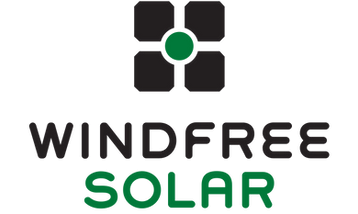
Local Service
Average cost
Pros
- Excellent reputation
- Outstanding workmanship
Cons
- Slightly limited service area
- May be overqualified for residential systems
- No leases or PPAs
Windfree Solar is a small local installer that employs experts on local weather conditions, energy needs, incentives and more.
The company only accepts cash and loans and has a limited service area, but it’s still an excellent option for most Illinoisans, in our opinion.
Why We Chose Windfree Solar as the Best Local Installer
Windfree Solar is headquartered right in Chicago and has been serving Illinois solar customers since 2009. With over a decade of localized experience, the representatives understand the needs of IL residents and can custom-fit solar solutions that are designed to meet them.
The reps are knowledgeable about local incentives, including those offered by individual utility companies and municipalities. They can help you file for all applicable perks, which can help you save money overall and get the most value out of your solar array. That includes solar and other energy-efficiency incentives offered by the state, local municipalities and electric companies.
Windfree delivers the kind of stellar customer service you’d expect from a smaller local company. It maintains a 4.7-star rating on Google Reviews, plus an A+ rating from the BBB.
The provider also includes a 15-year workmanship warranty, which is longer than average and ideal in an area like Illinois, where panels are at an above-average risk of damage and roof leaks.
What We Don’t Like
Windfree Solar doesn’t serve all of Illinois, so there’s a chance you’ll fall outside of its service area. This isn’t a major downside, but it is something to keep in mind if you’re considering this provider.
Additionally, it doesn’t accept leases or PPAs, much like most local installers. These payment options aren’t recommended anyway, but they’re lower-cost options than cash payments and loans, so their inclusion can help keep clean energy more widely accessible throughout the state. Plus, they’ll likely be more popular in the future when the need for batteries pushes up installation costs and makes cash purchases and loans less viable.
Solar Products
Rather than working with a small number of panel brands as so many other installers do, Windfree instead takes a one-off design approach, choosing and installing panels for your specific solar array, energy demands and budget.
This keeps your options totally open, so whether you’re looking for low-cost solar panels to keep your installation total down or you want to maximize your solar production with a high efficiency rating, Windfree will likely be able to accommodate you.
In addition to solar panels, Windfree installs some solar batteries and provides access to solar monitoring apps:
- LG Chem solar batteries
- Enphase IQ batteries
- The Enphase solar monitoring app
- Commercial solar projects
The variety of batteries from Windfree is a welcome site, and we expect customers will enjoy the options if and when net metering goes away and batteries are required to see significant savings.
Financing Options
Unfortunately, Windfree Solar only accepts cash purchases and solar loans. These are somewhat accessible in Illinois, where system prices are lower than the national average, but we’d still prefer to see leases and PPAs offered to improve that accessibility.
Of the two options available, we strongly recommend a cash purchase if you can make it work. Paying in cash will lead to immediate panel ownership and help you avoid interest, meaning the greatest financial benefit over time. A loan can also be a great option, though, if you can’t make a cash purchase work.
Warranty Information
Windfree includes a 25-year warranty for the equipment and production provided by the panel manufacturers with which it works. The equipment warranty is average, but the efficiency guarantee is a little longer than the industry average.
Windfree also shines when it comes to the workmanship warranty. In a state like Illinois, where the risk of panel damage and roof leaks from improperly installed panels is relatively high due to the extreme weather and heavy rainfall, the above-average 15-year workmanship warranty offered by Windfree is outstanding.
Facts and Figures: Windfree Solar
| EcoWatch Rating |
|---|
| Better Business Bureau (BBB) Rating |
| Average Cost ($-$$$$$) |
| Solar Services |
| 4 |
| A+ |
| $$$ |
| Solar Panels, Solar Batteries, EV Chargers, Energy-Efficiency Upgrades, Community Solar |
AES Solar
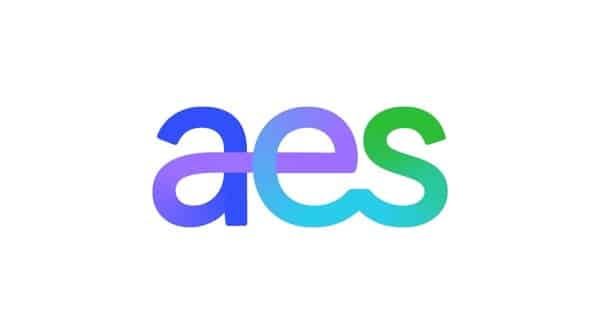
Average cost
Pros
- Decades of local experience
- Excellent customer service
- Certified B-Corp
Cons
If you’re looking for a company with decades of local experience to ensure a safe and efficient installation, AES is one of the best companies we can recommend.
The company only includes a less robust labor warranty than we’d like to see, but we feel that the experience speaks for itself and should keep your system protected.
Why We Chose AES Solar as the Company With the Most Local Experience
AES Solar is a small local company that has been serving Southern Illinois for over 24 years. Since 1999, this installer has solely worked in the Prairie State, so its technicians and representatives have extensive experience in the area.
They not only understand the local needs of Illinois solar customers in the face of the state’s extreme weather, but they are also intimately familiar with local solar incentives offered by individual municipalities and electric companies. The reps are always willing to help you file for as many rebates and perks as possible to save you money.
Not only that, but those same reps deliver outstanding customer service, as you’d expect from such a small company.
Unlike most local installers, AES accepts all four standard solar payment options, so it keeps its incredible service available to most residents.
What We Don’t Like
The only thing we’d consider a real downside is that the installer only offers a ten-year workmanship warranty. Again, this is the standard in the industry, but we like to see longer coverage in areas with extreme weather and heavy rainfall, like Illinois. Still, we do think the company’s local experience should mean your system will be professionally installed, meaning you shouldn’t run into any issues.
Another thing to consider is that this is a small company, so it only operates in Southern Illinois. This kind of limited service area is expected from a local provider, but it’s something we feel we had to mention.
Solar Products
AES Solar carries panels from a few different manufacturers, including Trina, LONGi, Silfab and SolarEdge. These are all great options, in general, and they provide a nice array of choices to help optimize for cost, efficiency and other performance specifications.
We recommend the LONGi panels if you’re looking to maximize solar production. These come with a peak efficiency rating of 22.6%, which almost matches the highest in the industry. The SolarEdge panels will likely be the most affordable option, so we’d recommend those to keep your costs down.
Below is a quick list of other products and services you can get via AES Solar:
- LG Chem batteries
- Enphase solar batteries
- The Enphase solar monitoring mobile app
- Ground-mount solar
- Off-grid systems
- Commercial solar projects
Having battery options is stellar, especially since Illinois’ NEM policy recently declined. If it continues to get less appealing, those battery options will be even more beneficial.
Financing Options
AES Solar accepts all four of the main solar payment options. We love to see this many options, as it gives all homeowners the best chance of being able to afford clean energy solutions.
We recommend a cash purchase if you can make it work or a solar loan if you can’t pay in cash. These options both give you access to the federal credit, and they lead to panel ownership and the highest savings overall. A lease can be a decent option if cash and a loan won’t work, and we generally don’t recommend PPAs due to the minimal savings they provide.
Warranty Information
You get a 25-year equipment warranty through AES Solar, which is in line with the industry average, as well as a 25-year production warranty, which is five years longer than average. The workmanship coverage is also average at ten years.
We will reiterate that we’d prefer a longer coverage term for the workmanship in Illinois. The state is prone to severe weather and sees above-average rainfall each year, so longer coverage is preferred. However, we do feel that the company’s decades of local experience mean you’ll get a high-quality installation that should hold up to the weather in the area.
Facts and Figures: AES Solar
| EcoWatch Rating |
|---|
| Better Business Bureau (BBB) Rating |
| Year Founded |
| Average Cost ($-$$$$$) |
| Solar Services |
| Brands of Solar Equipment Offered |
| Warranty Coverage |
| 4.5 |
| A+ |
| 1999 |
| $$$ |
| Solar panel and battery installations, Ground-mount solar, Commercial solar, Off-grid systems |
| Trina, LONGi, Silfab, SolarEdge |
| 25 years for equipment and efficiency, 10 years for workmanship |
Watch Below: Will Solar Panels Save / Make You Money?
How To Save Money When Hiring A Solar Installer In Illinois

Going solar is expensive. On average, the cost of going solar in Illinois is $18,060 for a typical 7.5 kilowatt (kW) system after the federal tax credit. Without the credit, you’re looking at an average of $25,800. The reason for the high price tag is, in part, an above-average cost per watt. IIllinois residents pay around $3.44 per watt for panels, while the U.S. average is $3.33.
Overall, solar power systems in Illinois cost less than they do in most other states because energy needs are lower than average, so the total system size required is also below average. Still, paying nearly $22,000 for any home improvement can be hard to swallow. Below are some tips for saving money on your solar system when choosing a solar installer.
- Choose a company that provides robust warranty coverage
- Choose an experienced company that is well-versed in local solar benefit programs
- Choose an installer with high-efficiency panel offerings
- Avoid solar batteries and reconsider companies that push them
Choose an Installer with Good Warranty Coverage
The most significant thing you can do to keep your long-term costs down in the Midwest is to choose a company that offers robust solar warranty coverage.
Illinois residents see extreme weather regularly, including tornadoes, intense thunderstorms and above-average precipitation. The tornadoes in Illinois, specifically, are known to cause massive property damage.2 The extreme weather events in the area can all contribute to panel damage, which means lengthy coverage can help you avoid paying for costly repairs.
Workmanship warranties are also great to have, as they help ensure that the installation is done properly. This is crucial in IL because the sometimes-excessive rainfall can put your roof at an elevated risk of leaking if the panels are installed improperly.
Take Advantage of Illinois Solar Incentives
Next, we recommend you choose an experienced installer that has been completing installations in Illinois, specifically. The Prairie State has quite a few solar perks available, and companies that are familiar with the area are more likely to help you take advantage of these benefit programs. Ultimately, they can save you hundreds or even thousands of dollars.
In the chart below, we’ll provide a list of some of the available solar rebates and incentives in Illinois.
| Incentive | Description |
| Federal Solar Investment Tax Credit (ITC) | The federal solar ITC is a credit to your income tax burden for 30% of your entire system value, including the cost of labor, panels, inverters and batteries. In IL, this credit averages out to $7,740, making it the most crucial incentive to take. |
| Illinois Shines Program | This is a Solar Renewable Energy Certificate (SREC) program. You earn credits for all solar production, and you can then sell those credits for a profit to help pay down your panel cost. |
| IL Solar for All Program | This is a financing option for low-income households. It lets prospective customers install solar for no money down. They would then pay a nominal fee over time for the energy produced. |
| Net Metering | This policy lets you overproduce energy with your panels and then use those extra kilowatt-hours (kWh) to pay down future utility bills. Solar net metering is one of the best incentives in the country, as it helps reduce your panel payback period and lets you take full advantage of all the electricity you generate. Some IL residents get access to great net energy metering terms: full retail value for all excess energy and credits that roll over for up to a year—this is mandated by the state for investor-owned utilities (IOUs) only, but some other providers opt to offer it as well. |
| Solar Property Tax Exemption | This is a property tax exemption that prevents the value that your panels add to your home — around 4.1% of your home value, on average — from pushing your tax bill higher.3 |
| ComEd Solar Rebate | This is for customers of Commonwealth Edison (ComEd) only. It’s a cash back perk of up to $250 per kW of solar capacity installed. The average rebate in IL is $1,875. |
Choose an Installer With High-Quality Panel Brands
You can also save money over time by choosing a company that offers quality, high-efficiency solar panel brands. These include SunPower — the most efficient — REC, Tesla, Panasonic, Q Cells and more.
PV panels usually pay for themselves by generating electricity that offsets your electric bills. Therefore, the more power your panels produce, the more of your energy bills they’ll offset and the more they’ll save over time.
High-efficiency panel brands are especially useful in Illinois because the state sees fewer sunny days than the national average, and because they provide greater savings overall. This is important in Illinois, where net metering credit rates recently took a hit and are expected to continue to decline. Getting an efficient solar panel brand that works on cloudy days will also help ensure you see the maximum possible savings, even though your upfront costs can sometimes be higher.
Consider Solar Batteries Carefully
Finally, you can keep your total system costs down by avoiding solar batteries, although you might want to consider them. Energy storage solutions are often helpful in IL, given the high risk of power outages, and they’re becoming more and more popular with changes to net metering.
Illinois used to mandate the full retail rate for exported electricity in its net metering policy, but that recently changed, and most customers now get below the retail rate. That cuts into savings. Ultimately, batteries push up your installation costs by $10,000 to $20,000, but they can help drastically improve solar savings over time in areas with NEM policies that are less than ideal.
Right now, batteries probably still aren’t worthwhile from a financial perspective. However, we expect Illinois to continue to see declines in the net metering policy, much like California saw in 2023. When that happens, the added cost of batteries will likely pay for itself because they always provide effective one-to-one net metering.
Read Also: Calculate How Much You Can Save By Going Solar
Will Solar Increase Your Home Value In Illinois?
Yes! Installing solar panels is expected to raise your home value by around 4.1%.5 In IL, where the average home value hovers around $249,224, that’s an expected value bump of $10,218.6
Home values in IL have also risen by over 10% in the past year, and they are expected to climb in the future. That means the value added by your panels should increase over time, making your investment more and more valuable.
It’s worth mentioning that this value increase and return on investment is usually most significant in high-cost areas. The cities below are some of the most expensive in IL, so customers in these areas will also see the greatest home value benefit.
- Kenilworth
- Chicago
- Springfield
- Winnetka
- Glencoe
- Hinsdale
- Rockford
- Golf
- Wilmette
Should Illinois Residents Hire a Professional Solar Installer Or DIY?
It’s sometimes tempting to consider a DIY solar panel installation, mostly because the cost of installing panels yourself is much lower than hiring a professional would be. Unfortunately, the cost savings associated with a DIY installation aren’t always as appealing as they seem.
Below, we’ll list a few reasons why we typically recommend going with a professional for your solar conversion. We’ll also explain each of these in the sections below.
- DIY panels have inferior warranties in most cases
- DIY installations are at higher risk of roof leaks
- DIY panels aren’t as efficient
DIY Panel Warranties Aren’t the Best
DIY solar kits usually come with equipment warranties that last for up to five years. In contrast, professionally-installed systems often get protection for up to 25 years. Plus, they can come with workmanship and efficiency warranties as well.
Warranty coverage is one of the most crucial things to consider in IL because of the extreme weather. Tornadoes, intense thunderstorms and heavy rainfall can all contribute to panel and roof damage. You might save money installing your own panels, but you could end up paying more in the long run if you have to replace or repair damaged or underperforming equipment.
DIY Solar Installations Leave Your Roof at Risk of Leaking
Roof leaking is one of the most common issues reported after solar installation. Even professionals who have years of history in the industry often can’t guarantee that your roof shingles will never leak because of the penetrations created during panel installation.
Homeowners who choose to install their own panels are, of course, even less experienced and are more likely to make mistakes. This leaves DIY installations at a higher risk of roof leaks. This is an especially prominent issue in IL, where the rainfall is above the national average.
You will pay less upfront for a DIY installation, but roof repairs and water damage mitigation over time could end up costing you far more in the long run.
DIY Panel Efficiency Is Lower than Professional Systems
Finally, DIY panels almost always have a lower efficiency rating than panels available to professional installers. Efficiency is an important consideration not only because it determines your long-term savings but also because solar equipment costs more per watt in IL than in most states.
With an above-average cost per watt, you can save more money than most U.S. residents by choosing a high-efficiency panel. A brand like Maxeon gives you the best chance of needing fewer panels to meet your energy needs, which means you could end up paying less in total for your solar panel system.
What Should Illinoisans Look For in a Solar Installer?
There are a few things that are important to look for in an IL solar installer that can help you get the most out of your system. We’ll list these below and explain in the following sections why each is so important.
- Robust and lengthy warranty coverage
- Years of company history and experience
- Coverage area
Warranty Coverage
The number one thing we recommend looking for in an IL solar installer is robust warranty coverage.
Physical protection is the most important, in our opinion, because it provides peace of mind and a lower risk of needing costly repairs or system maintenance. Unfortunately, these are required more often in IL than in most other states because of the extreme weather.
We also recommend considering workmanship warranty coverage. A company that guarantees that its installation techniques won’t lead to issues for years afterward is far more likely to leave you with a system that doesn’t lead to expensive roof leaks. Again, this is important in IL, specifically, because of the above-average precipitation.
Years of Experience
Next, we recommend looking at how long the company you’re considering has been in business and, specifically, how long it has been serving IL.
The Prairie State is home to quite a few appealing solar incentives, and taking advantage of them could mean saving hundreds or, more likely, thousands of dollars. A company that has years of local experience is more likely to be familiar with the incentives and help you take as many as possible to keep costs down and savings up.
Inclusive Coverage Area
Finally, it’s important that you consider each company’s service area. IL is home to nearly 100 installation companies, many of which are small and serve just a portion of the state. Before you dive into researching a company and requesting a free quote, you should ensure that you fall within its service area to save time.
Methodology: How We Reviewed the Best Solar Companies in Illinois
As we parsed through the 100+ solar installers that operate in Illinois, we prioritized companies that meet specific criteria that we believe are most crucial for delivering a positive experience in your area. We’ll explain the six factors we weighted most heavily below and explain why we think each is important in IL, specifically.
- Local reputation and reviews (20%): First, with a high demand for solar being met by over 100 installers, we’ve seen a lot of fly-by-night companies popping up to take advantage and turn a profit. We put a lot of emphasis on the company’s reputation when choosing solar contractors to recommend. We read through dozens of customer reviews to gauge how well each provider services its customer base to avoid those that underperform and fall short of expectations.
- Pricing and financing (20%): Going solar in Illinois is more affordable than it is in most other states, but the average system still totals over $25,000 before incentives. Since this is still quite expensive, we prioritize companies that maintain average or below-average pricing to keep renewable energy affordable. We also prefer companies that accept a range of financing options, as this helps maintain accessibility.
- Services offered (20%): Since Illinois has such a good net metering program, solar batteries aren’t terribly popular. However, we do look for companies that install EV chargers — as EVs are rapidly growing in popularity in the state — and other add-on products and options, like off-grid systems and ground-mount solar. Companies that have many services offered naturally appeal to more customers.
- Warranty coverage (20%): Illinois residents see above-average amounts of rain each year and their fair share of extreme weather, including thunderstorms and tornadoes. Rooftop panels are put at an increased risk of damage due to the weather, which is why we prioritize companies that offer solid warranty coverage. We specifically look for lengthy workmanship coverage, as this helps reduce the risk of panel and property damage.
- Company experience (10%): With so much demand for solar conversion in the state and over 100 installers vying for your attention, we prioritize installers that have a decade or more of experience. This helps ensure your installer has the experience and expertise to deliver a safe and secure system, and it also helps avoid young companies that are more likely to go out of business and void your warranty coverage in the process.
- Brand quality (10%): Finally, we look at the brands of solar equipment each provider installs. We prefer companies that offer a range of products that appeal to customers looking to prioritize different things, like upfront price and performance for long-term savings. Companies with multiple brands of solar panels tend to rank higher in our ratings.
Read More About Going Solar in Illinois
- Is Solar Worth It in Illinois?
- Illinois Solar Incentives Guide
- Find Cost Savings on Solar Panels in Illinois
- What to Know Before Buying Solar Panels in Illinois
The cost information presented in this article is derived from a comprehensive analysis, incorporating data from multiple industry sources. The average cost per watt per state was calculated based on figures from Consumer Affairs, Energy Sage, and Berkeley Lab’s Electricity Markets & Policy Department. Additionally, monthly energy consumption and the average monthly cost of electricity were sourced from the U.S. Energy Information Administration, ensuring a well-rounded and accurate representation of the information presented.
FAQ: Best Solar Companies Illinois
Below, we’ll answer some of the most common questions we see from IL residents about the prospect of going solar.
There is no one most reputable solar installer in IL, as each offers slightly different services. We feel confident in recommending any of the companies listed above as reputable solar installers in IL. Some other honorable mentions include Blue Raven Solar, Tesla Solar and Yellowlite.
IL may not jump to mind as a good state for solar energy, but its strong financial perks have generated plenty of growth in the solar industry. If you have the right home for it, solar is well worth the investment in IL.
Solar makes sense in almost any state of the country, IL included. Solar may not offer a blanket energy solution in IL as it does in Arizona, but the state’s clean energy goals still make solar energy a big part of the Prairie State’s future.
Related articles
Top Solar Installers in Illinois Cities
Comparing authorized solar partners
-
- Industry-leading in-house financing
- Competitive pricing
- Excellent reputation
- Doesn't offer solar batteries (coming 2022)
A+Best Solar Financing2014Trina Solar, Canadian Solar, SolarEdge, Silfab, SunPower25-year manufacturer warranty; 10-year workmanship warranty, 2-year production guarantee
Having trouble deciding? Click below and use our process to receive multiple quotes instead:

 233k
233k  41k
41k  Subscribe
Subscribe 

